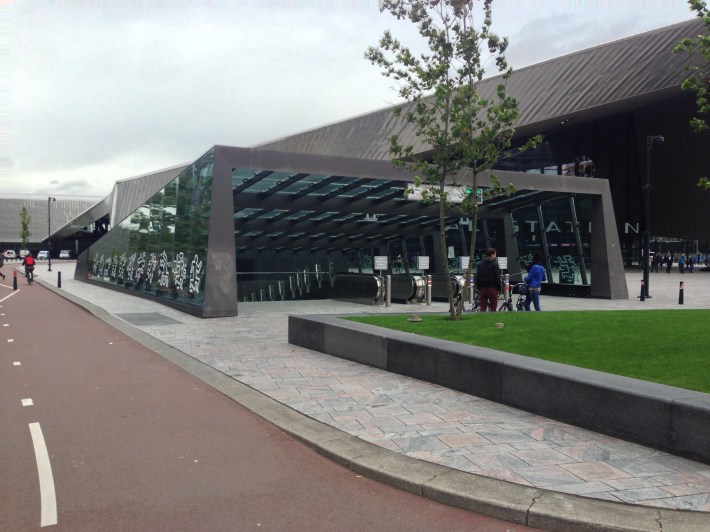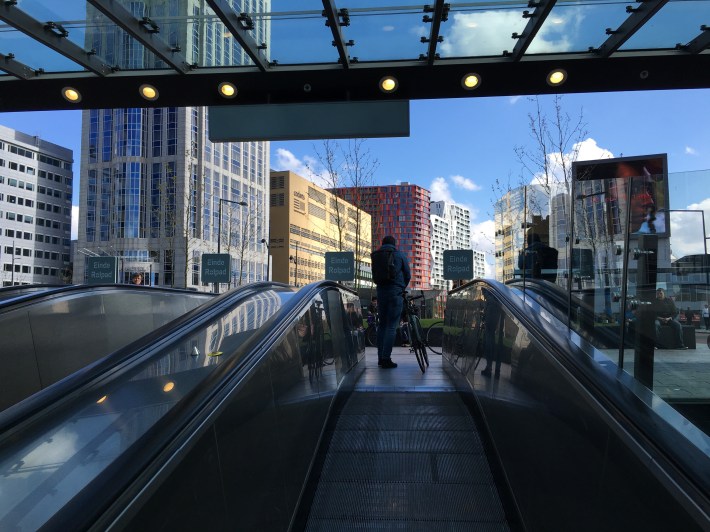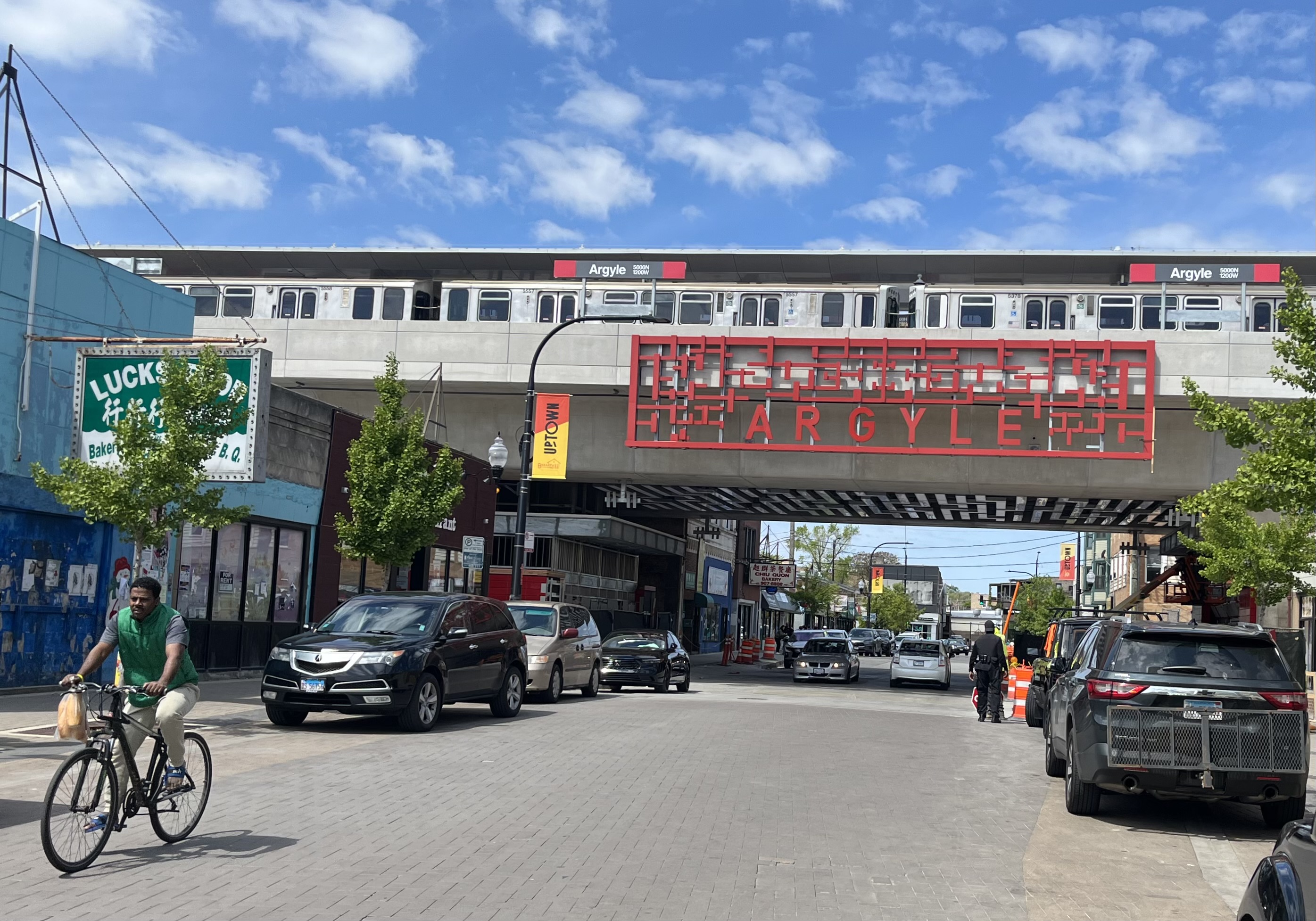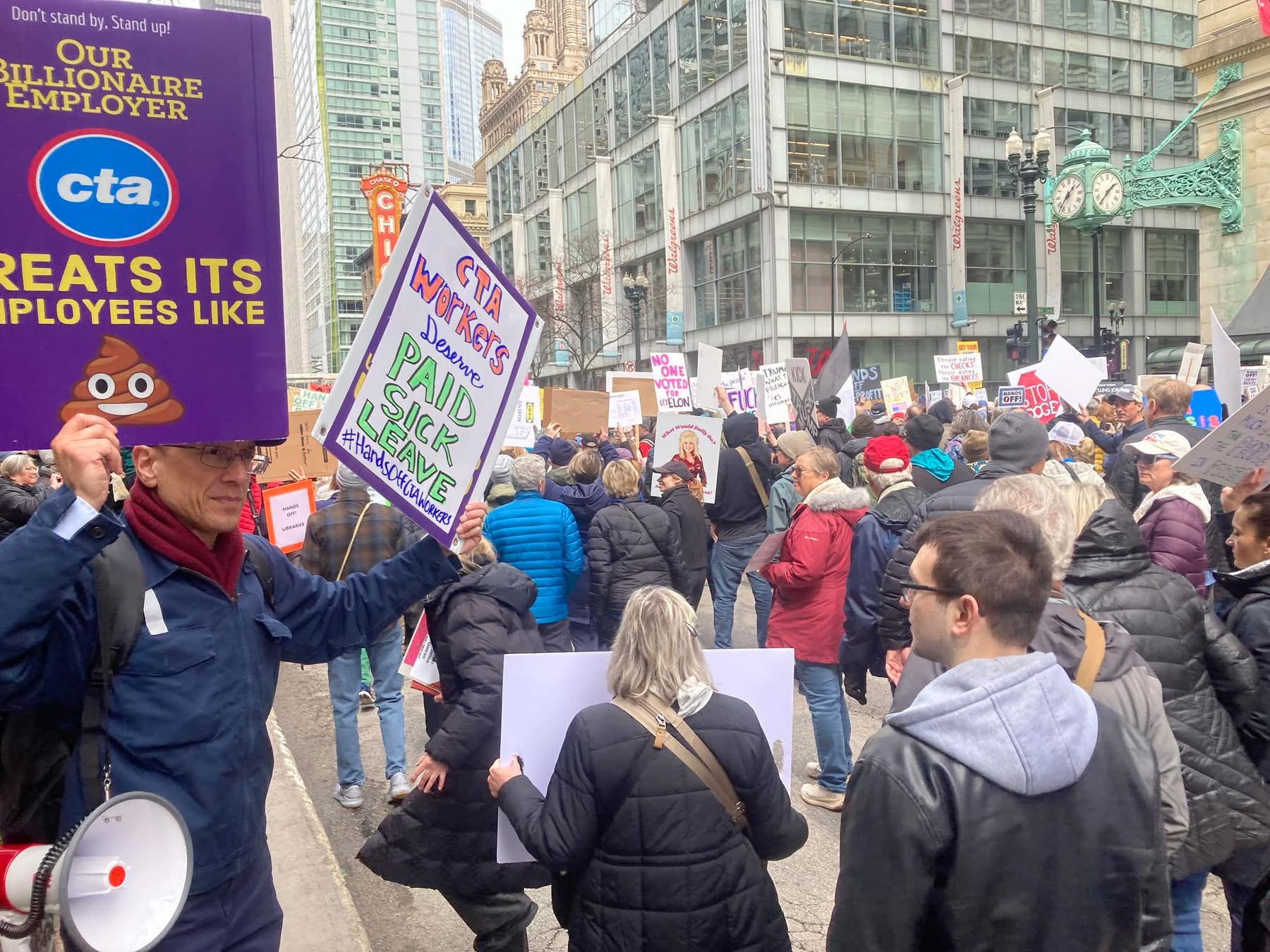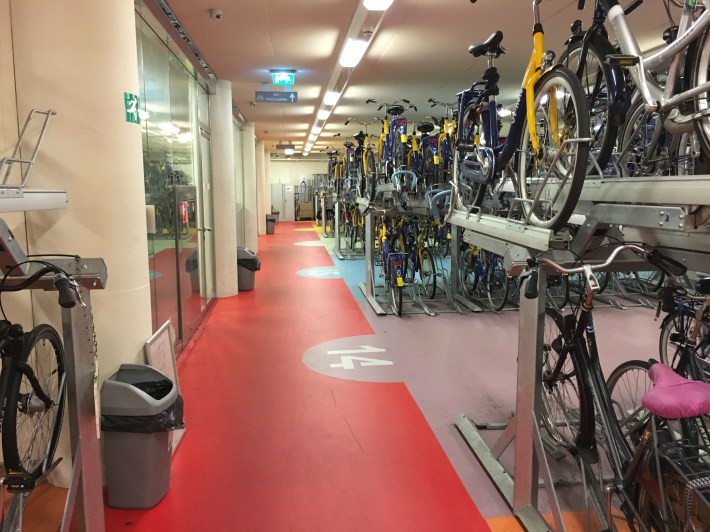
As a former bicycle parking planner for the Chicago Department of Transportation on sabbatical in northern Europe, I'm impressed by how much better the long- and short-term bike storage is here than what I'm used to in the states. Too often in the U.S., bike parking is an afterthought even though secure and convenient parking is essential for encouraging more people to use a bicycle for transportation. Nothing discourages a would-be cyclist like having a bike stolen.
I left my home base of Rotterdam, Netherlands, on the Inter-City Express (ICE) train this morning to visit a friend in Bonn, Germany, for a few days. I biked with my luggage to Rotterdam's Centraal Station, the main train station, and parked it in the underground fietsenstalling ("bike parking area"). They have a couple thousand free spaces and you can leave your bike there for nearly a month. After 28 days the city will remove your bike from the area and store it in a warehouse. Being able to leave my bike in a secure public parking area for several days is a perk I've never experienced in the U.S.
The bike parking "garage" at the Rotterdam station works much like a car parking garage in Chicago. There's a dedicated ramp to enter the structure, a direct path to the parking area, and signs that tell you how many spaces are open.
Nowadays, I generally never leave my bicycle outside overnight in Chicago. The last time I did that with any regularity was when my family still lived in Batavia and I would ride Metra's Union Pacific-West line out there from the Ogilvie Transportation Center to visit. I would park across the street at the Presidential Towers development, using two locks to secure my bike to an on-street rack. While I was away, I kept my fingers crossed that a thief wouldn't steal my bike because it was locked more securely than its neighbors.
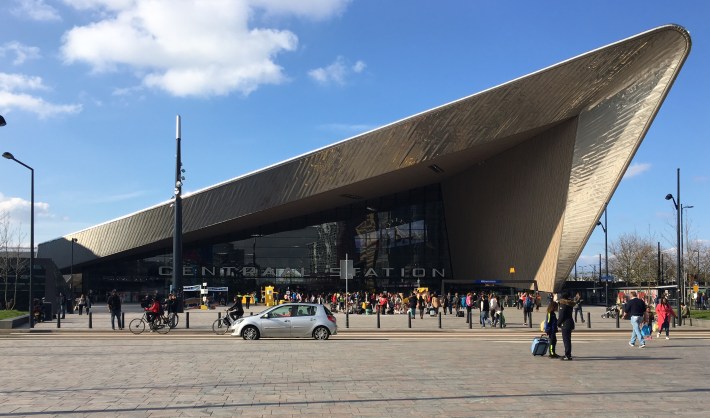
I just bought a new bike yesterday. As I write this, it's double-locked at Centraal Station and I have all the confidence in the world it'll be there when I return on Monday.
In the Netherlands it's common for people to bike to the airport or leave their bikes at a train station before boarding a train to the airport. Thanks to to the excellent parking facilities you can be sure your bike will be there when you come back from your trip.
When I fly out of O'Hare to visit my family in Utah, it would be great to be able to pedal to a Blue Line stop (with a large backpack as my luggage), lock up my bike at the station and then catch a train to the plane. Unlike O'Hare, Midway is fairly easy to bike to, since it's surrounded by neighborhoods, rather than expressways. It also would be nice to be able to leave my bike locked at that airport for the duration of my trip.
Unfortunately, secure, long-term bike parking generally isn't available at Chicago's train stations and airports, so I don't feel comfortable doing those things. John told me that on a few occasions he's ridden to a Blue Line station, taken the train to O'Hare with my bike, and then left his bike locked to a rack at the O'Hare stop, within sight of the customer assistant, for a few days and never had a problem. I'd rather not bring my bike into that station
When I worked for the Chicago Department of Transportation there were proposals to build bike parking facilities at Ogilvie and Union stations similar to the Millennium Park bike station, which offers its members secure, long-term parking, plus other amenities like showers and lockers. Cost was one of the reasons neither plan was implemented. Last October, a coworking space in the West Loop opened an indoor bike room with showers and lockers called Bike Park -- memberships are available to the public.
I'm not advocating that Chicago spend a lot of money to provide long-term parking for people who want to bike some or all of the way to airports, but we really need to pick up our game by providing more secure bike parking options, so that biking can be the first choice for more kinds of trips.
![]()
Did you appreciate this post? Consider making a donation through our PublicGood site to help us win a $25,000 challenge grant from the Chicago Community Trust, which will ensure we can continue to publish next year.
